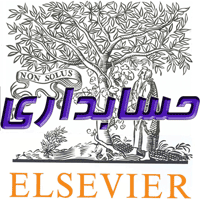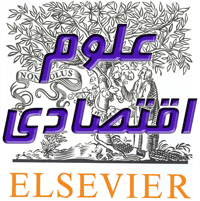دانلود مقاله isi تحلیل و تجزیه تمایل انتخاب در تحقیقات بازاریابی
دانلود رایگان مقاله الزویر در مورد فرا تحلیل و تجزیه تمایل انتخاب در تحقیقات بازاریابی (کلیک کنید)
توضیحات مقاله ی ISI که میخام بخرم :
وبسایت مکاله اقدام به ارائه پروژه ی ساینس دایرکت با فرمت pdf، از انتشارات الزویر برای رشته بازاریابی، و با عنوان فرا تحلیل و تجزیه تمایل انتخاب در تحقیقات بازاریابی، نموده است.
مشخصات این مقاله :
عنوان مقاله :
Meta-analysis selection bias in marketing research
ترجمه فارسی عنوان :
فرا تحلیل و تجزیه تمایل انتخاب در تحقیقات بازاریابی
سال انتشار : 3333
متعلق به مجله یا ژورنال : نشریه بین المللی تحقیقات بازاریابی Intern. J. of Research in Marketing
فرمت: PDF
تعداد صفحات: 10
شماره پروژه: 5064
کلمات کلیدی :
Selection bias, Publication bias, Meta-analysis
تمایل انتخاب، تمایل انتشار، متا تجزیه و تحلیل
چکیده :
Abstract
The tendency of meta-analytic authors to select particular studies is called selection bias. Selection bias can affect the strength of the meta-analytic estimate and the attention that scholars devote to the results. This research is, in effect, a meta-analysis of the effect sizes reported or calculated from94 meta-analysis studies of various topics in marketing research. The analysis reveals that estimates depend on the publication status of the included studies. The greater the percentage of studies that were published in academic journals vs. non-published studies, the greater is the size of the meta-effects, and the more published studies from leading journals the meta-analysis includes, the stronger the effect size. The meta-analytic effect size is a mediator for the influence of both the ratio of unpublished studies and the ratio of studies from leading journals on the probability of a meta-analysis to be published in a leading journal, which increases the number of citations to a meta-analysis. The findings of this study have several implications for meta-analysts, editors, reviewers and the marketing community on how to conduct and read current and future meta-analysis in marketing research.
مقدمه این مقاله :
Introduction
It is awell-known problemthat preferential publication of significant and strong results over non-significant and weak results leads to a literature that provides a false impression regarding the size of the effect in question. There is strong evidence from several fields of science that this “publication bias” exists (Dickersin, 2005). By including published and unpublished studies in their quantitative review, meta-analysts try to mitigate the problemthat the publication status of a study (i.e.,whether the study is published or unpublished) is related to the effect size estimate in the study. The efforts to include studies of various publication statuses and the tendency of meta-analytic authors to select particular studies—whether intentionally or not—are called selection biases (Ferguson & Brannick, 2012). The current study identifies and examines selection bias in 94 meta-analyses in marketing research and its consequences for academia. Selection bias arises from the selection decision of a meta-analyst, whereas publication bias is based on the decision of authors and editors to submit and to publish a manuscript, which precedes the selection decision of the meta-analyst. Although it is a different kind of bias, a selection bias might have similar consequences as a publication bias because certain studies are more likely to be selected than other ones, which influences the strength of the meta-analytic estimate and the attention scholars pay to the results. These consequences are of importance for both practitioners and scientists. Biased estimation of effects can lead towrong decisions of practitioners and cause harmbecause inefficient measures are chosen. Biased findings can steer future research endeavors and achievements of academics in the wrong direction, lead to wastage (i.e., unnecessary work), and harm the pursuit of scientific truth (Knight, 2003). A thorough investigation of a selection bias is essential to evaluate the true value of meta-analytic findings.
This study contributes to the literature in several ways. First, the study contributes to the research about meta-analyses by examining for the first time the selection bias of meta-analysts and its consequences for academia. Second, the study contributes to our general knowledge about publication bias, which is related to the selection bias. The findings indicate not only that whether a study is published influences the size of an effect (which has been the focus of prior research on publication bias) but also that where (i.e., journal outlet) the study is published can bias the findings reported in the study. Third, the study provides details about the existence and extent of selection bias in the field of marketing. These insights provide implications for marketing researchers on how they should conduct, review, and read current and future meta-analyses.
توجه :
– این مقاله به صورت کامل و با فرمت پی دی اف آماده خرید اینترنتی و دانلود آنی میباشد.
توضیحات بیشتر در مورد پروژه :
در این مقاله خواهید خواند که گرایش نوسندگان فراتحلیلی در انتخاب مطالعات خاص خود، را تمایل انتخاب می نامند. تمایل انتخاب بر برآورد قدرت تحلیل تاثیر به سزایی دارد. یافته های این مطالعه چندین مفاهیم را برای فرا تحلیلگران ، ویراستاران، داوران، و جامعه بازاریابی در مورد انجام و چگونگی خواندن تجزیه و تحلیل در زمان فعلی و آینده فراهم کرده است.
دانلود رایگان مقاله الزویر در مورد فرا تحلیل و تجزیه تمایل انتخاب در تحقیقات بازاریابی (کلیک کنید)

